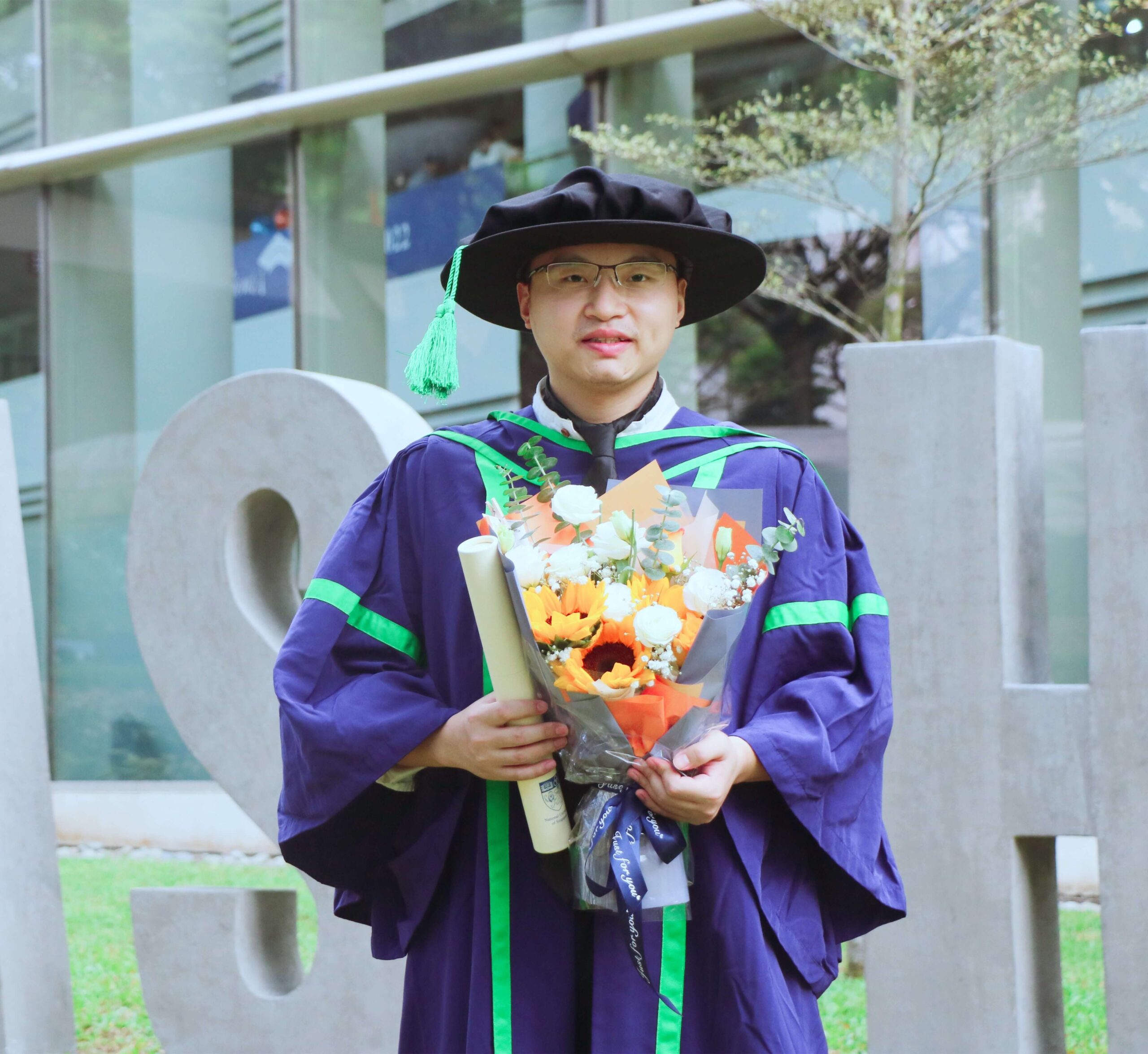Hu Junxiong
[PhD 2022]

Reviewing the old and learning the knowledge of the new, a master you will become.
Hu Junxiong
In 2017, when I received the NUS admission offer at my home, my supervisor sent me a congratulatory message “Enjoy your PhD study at NUS!” I was so excited but also wondered why I would enjoy it. I expected the PhD study must be full of bumps and thorns on the road, with a journey of difficulties and challenges. Perhaps it was better to say “endure” than “enjoy”.
Now that I have successfully graduated and obtained my PhD degree, I really feel that PhD study can also be a happy thing. Looking back on my footprint at NUS, I would say that I have truly enjoyed it. The reasons are multifold.
Firstly, the ‘free-range’ guidance at NUS made me feel comfortable. My supervisor, Prof Ariando, respects the individual development of each student and will design the topics based on students’ interest and strength. Most importantly, my supervisor never forces students to do something they feel uneasy about. Therefore, I had minimal unnecessary external pressure and could focus on doing great research. My supervisor had always been collegial rather than bossy, which was extremely helpful for my research-life balance.
Secondly, the research atmosphere at NUS inspired me to a great extent. I could meet a group of like-minded friends, and I always got professional advice from them. At NUS, we could find all kinds of talented students and groups. Their pioneer works have created an excellent academic environment and inspired the younger generations. Following their footsteps, we could see and go deeper and further.
Thirdly, the ‘involution’ at NUS is not severe. ‘Involution’, a vicious competition leading to a waste of resources, will not increase the ability, but only increase the anxiety of students. I really appreciate that NUS can provide a relaxed and pleasant academic environment. At NUS, the pursuit of the number of publications or prizes and awards won is not over-emphasized. I absolutely support this because any honour won should be a source of encouragement to an individual rather than to add pressure on your peers.
Finally, I would like to thank my wife and my family. Without their continuous support, I would not be able to pursue my PhD in Singapore. I hope my son could be inspired and happy to explore the unknown in science in future. I like to tell my son, “If you do complex things simply, you are an expert; if you do simple things repeatedly, you are a master; if you do repetitive things with a heart, you are a winner. Reviewing the old and learning the knowledge of the new, a master you will become.”
